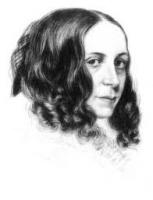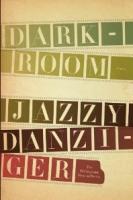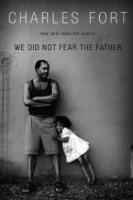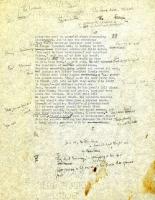March 6, 2012
Edited by David Sanders
Specimen Days
March 6, 2012
1495 – Luigi Alamanni, Italian poet (Opere Toscane, La Coltivazione), is born.
1615 – Jan Zoet, actor/playwright/poet (Parnasssus aan ‘t Y), is born.
1740 – Giovanni Meli, Siclian poet (Buccolica), is born.
1806 – Elizabeth Barrett Browning, Coxhoe Hall England, poet (Sonnets from the Portuguese), is born.
 My letters! all dead paper, mute and white!
My letters! all dead paper, mute and white!
And yet they seem alive and quivering
Against my tremulous hands which loose the string
And let them drop down on my knee tonight.
This said—he wished to have me in his sight
Once, as a friend: this fixed a day in spring
To come and touch my hand. . . a simple thing,
Yes I wept for it—this . . . the paper’s light. . .
—from “Sonnet 28” (Elizabeth Barrett Browning 1806–1861)
Poetry In The News
Northfield’s Sidewalk Public Poetry Competition Returns
 The Arts and Culture Commission of Northfield announces the 2012 Sidewalk Public Poetry competition to mark National Poetry Month in April. This project is a partnership with the Friends and Foundation of the Northfield Public Library,and the Northfield Public Library, and the City of Northfield. This activity is funded by the Southeastern Minnesota Arts Council through the arts and culture heritage fund as appropriated by the Minnesota State Legislature with money from the vote of the people of Minnesota on November 4, 2008. Read more at Northfield Patch.
The Arts and Culture Commission of Northfield announces the 2012 Sidewalk Public Poetry competition to mark National Poetry Month in April. This project is a partnership with the Friends and Foundation of the Northfield Public Library,and the Northfield Public Library, and the City of Northfield. This activity is funded by the Southeastern Minnesota Arts Council through the arts and culture heritage fund as appropriated by the Minnesota State Legislature with money from the vote of the people of Minnesota on November 4, 2008. Read more at Northfield Patch.
Slam Poetry’s Popularity Surges in Manhattan
The Nuyorican Poets Café feels gritty—but in a comforting way. A large brick wall stretches across the front of the room, where a single microphone stands on a small platform. The bassheavy intro to Terror Squad’s “Lean Back” pulsates in the background, and the ground vibrates beneath my feet. At 10:25 p.m., Friday Night Slam host Mahogany Browne takes the stage. “I need five judges,” she says, and hands shoot into the air. “One, two, three, four, and you—five.” The lights dim further, music continues to play, and Browne pulls out her phone and begins waving it in the air, instructing the audience to do the same. Read more at the Columbia Spectator.
World Poetry
Foundation to Honour Nobel Laureate Szymborska
 An outspoken Tibetan writer said Chinese authorities prevented her from receiving a cultural award Thursday at the Dutch ambassador’s residence and are keeping her under virtual house arrest. Poet Tsering Woeser said state security agents told her Wednesday they would not let her attend the low-key, private event to receive the Prince Claus Fund of the Netherlands award for courage in speaking on behalf of the rights of Tibetans. Read more at the Washington Post.
An outspoken Tibetan writer said Chinese authorities prevented her from receiving a cultural award Thursday at the Dutch ambassador’s residence and are keeping her under virtual house arrest. Poet Tsering Woeser said state security agents told her Wednesday they would not let her attend the low-key, private event to receive the Prince Claus Fund of the Netherlands award for courage in speaking on behalf of the rights of Tibetans. Read more at the Washington Post.
Guerilla Artist Replaces Ads with Poetry
The Scottish artist, Robert Montgomery, like countless street artists who came before him, hijacks billboards and bus stops to display his melancholic verse. For ten years, he’s been replacing ad pitches with poetry and presenting commentary on culture, ranging from consumerism to beauty in bold white type set against a black background. Though not really a street artist, Montgomery takes inspiration from the Situationist tradition of détournement – capturing the audience’s attention in unexpected ways within the public realm. Read more at PSFK.
New Books
Darkroom by Jazzy Danziger
 [Paperback] University of Wisconsin Press, 72 pp., $16.95
[Paperback] University of Wisconsin Press, 72 pp., $16.95
In the aftermath of her mother’s suicide, one young woman recognizes the malleability of her reality. From her adolescence in the flat, hot Floridian landscape to a tectonic Missouri adulthood, a girl shaped by grief is compelled to create and manipulate her image of the world. As her dreams become indistinguishable from daily life, she begins to question memory, identity, and the function of love. Employing photography as its central metaphor, Darkroom tackles the tangled relationship between memory and mourning by exploring an artist’s impossible attempt to re-create the object of loss.
Selected Poems by Roy Fuller
[Paperback] Carcanet Press Ltd., 180 pp., $19.99
From his first wartime collection evoking a generation’s experience of a country made strange by blackouts and air raids to the consolatory wisdom of poems written later in his life, Great Britain’s Roy Fuller was a poet of the familiar and ordinary made extraordinary. Mundane details, observed with the author’s tolerant humor and acute eye, reveal depths and dissonances from which a civilized life may be created. On the centenary of Fuller’s birth, this generous selection—introduced by the poet’s son and including an afterword by Neil Powell, Fuller’s biographer—brings to a new generation of readers the work of one of the essential poets of the 20th century.
We Did Not Fear The Father by Charles Fort
 [Paperback] Red Hen Press, 224 pp., $24.95
[Paperback] Red Hen Press, 224 pp., $24.95
We Did Not Fear The Father: New & Selected Poems contains the best of forty years of Charles Fort. Ranging easily through a dizzying array of forms—sonnets, villanelles, prose poems, sestinas, elegies, blank verse, haiku, and modular poems, for starters—Charles Fort here demonstrates, unequivocally, that he is a master of his craft. By turns surreal, tender, terrifying, absurd, and soulful, Fort’s work churns with passionate, forceful expression.
The Sounding Machine by Patty Paine
[Paperback] Accents Publishing, 78 pp., $12.00
Winner of the 2011 Accents Publishing International Poetry Book Contest, The Sounding Machine is an exquisite collection of poetry that interrogates memory, culture and loss with courage and compassion. The poems are powerful and urgent and ultimately, with great empathy, they offer solace and the possibility of wringing beauty from ruin. Judge Lisa Williams, who selected the manuscript, provides a perceptive foreword as an entry into the book.
Recent Reviews
On 87-year-old Ruebner’s Latest Book of Poems
Tuvia Ruebner, the 2008 Israel Prize laureate, is one of three important Israeli poets who have enjoyed a late blooming.
by Rafi Weichert (translated by Rebecca Gillis)
The first is 1992 Israel Prize laureate Avoth Yeshurun. Chronologically speaking, Ruebner (b. 1924) is the second. His first book, Fire in the Stone, was published in 1957. He has since published many books, including excellent Hebrew poetry on a variety of subjects and drawing on a range of sources and styles. But study of his work reveals that beginning withStatue and Mask [from the biblical injunction “Ye shall make you no idols nor graven image”] entered an exceptionally creative phase combining amazing productivity with poetic excellence in the hundreds of poems he produced, many of the highest artistic stature. The third poet who may be said to have bloomed late is Aryeh Sivan, the 2010 Israel Prize laureate, a native Tel Aviv poet whose most important books have been published since the beginning of the 1980s. Read more at Poetry International.
A Vision: Matthew Henriksen’s Ordinary Sun
by Patrick Morrissey
The timing could hardly be better for Matthew Henriksen’s first book of poems, Ordinary Sun, to appear only a few months apart from his long-awaited feature on the poet Frank Stanford, published last summer in Fulcrum. Stanford is a singular influence on Henriksen’s poems and ideas about poetry; in the biographical section of the feature, he cites a passage from Stanford’s essay “With the Approach of the Oak the Axeman Quakes” that could serve as a valuable entry point to Henriksen’s own work. Read more at Harp and Altar.
All Together Now: How Description Fosters Connection
by Siobhan Phillips
What kinds of connection can poetry make? It’s an unexpected question, perhaps, because verse has often been thought of as the genre of isolation or wholeness: a well-wrought urn stood in timeless completion, an overheard speaker murmuring of himself to himself. But much of today’s most arresting poetry spurns the dream of self-sufficiency for the drama of relation. Scan even the titles of the works under consideration here—The Network, The Bigger World, Sarah—Of Fragments and Lines,Shoulder Season—which speak of webs, expansions, pieces, and interstices. These books live in transition, they manifest its links and gaps. Their art seeks on-leading ends rather than in-looking bounds, shunning causality and sublimity alike as they instead associate among words, thoughts, people, political agents. Managing connection, for these writers, is at once a formal task and a thematic statement. Read more at Boston Review.
Correspondences
Crashaw Prize: The Shortlist in Profile: Benjamin Morris
 by Chris Hamilton-Emery
by Chris Hamilton-Emery
I’m a native of Mississippi, and while I’ve lived in a number of different places, still consider myself primarily a Mississippian. After finishing university, I moved to the UK where I pursued graduate work both in poetry, in Edinburgh, and in archaeology, in Cambridge. My heart is in poetry, but I also work in a variety of other genres: fiction, nonfiction, plays, journalism, travel writing, and criticism. Read more at Salt.
Net Gains
by David Kosub
“A poet may, moreover, volley a syllable about in a way that reminds me of what my sister does with the ball when we play tennis. She repeatedly hits shots in one direction and, just when I have been lulled into thinking that she intends to continue this arrangement indefinitely, she rifles the ball to the opposite and undefended side of the court.” American poet Timothy Steele’s analogy for the wonderful asymmetrical properties of metrical verse recalls an earlier famous remark by Robert Frost: “Writing free verse,” he wrote, “is like playing tennis with the net down.” Both comments underscore a commitment to the practice of metered poetry, while reminding us of the frustrations Steele and many other poets and readers have had with the more dominant, open forms of poetry in this and the last century. Read more at Speaking of Poems.
Broadsides
The Cursed Poets and Their Gods
 The tortured lives and spiritual anguish of three great modern poets.
The tortured lives and spiritual anguish of three great modern poets.
by Algis Valiunas
The term poète maudit, or “cursed poet,” was coined by Paul Verlaine. His little book Les poètes maudits (1884) interleaved his own honorific prose with poems by some of the poets he most esteemed but whose very greatness assured that they were known only to the cognoscenti. It was their obscurity—society was indifferent to them because they were hard to understand—that prompted Verlaine to speak of them as cursed. This cultivated sense of neglect, even oppression, at the hands of the bourgeois philistines became the classic pose of the avant-garde. Read more at First Things.
Poems While You Wait
The Work of Poetry in the Age of Mechanical Reproduction
by Kathleen Rooney
It is ten o’clock on Sunday morning, and sunlight is streaming into the River East Art Center in Chicago, Illinois. Dave Landsberger, Eric Plattner, and I are surrounded by four elementary school girls ordering us to write them poems on the subjects of “cats,” “school,” “chocolate” and “sisters.” We roll sheets of paper into our two manual typewriters—Smithy and Quiet Deluxe—and set to work. The girls clutch their dolls and hover close as we strike the keys. Not only have they never had anyone write a poem to their specifications before, they have also never seen machines like these; they are all under ten years old, and their timelines consist only of handwriting and then computers. What are these things? How do they work? Why are they so loud? You don’t plug them in? Read more at the Poetry Foundation.
Jerusalem and Albion; or, Maze and Barleycorn
by Henry Gould
If there is, or could be, a center of American poetry — a suspect, much-derided supposition — then John Ashbery, needless to say, lives at or near it. Ashbery: presiding spirit, native genius! That courtly gent, whose arctic blue eyes, disappointed mouth, and eagle beak, convened for the camera, curiously resemble portraits of T.S. Eliot in old age. Ashbery’s parasol-like plumage spreads a kindly shade over more recent laboring; his generous blurbs brighten the back pages of scores of advancing young upstarts. The work of two of the most promising, Ben Mazer and John Beer, reveal a substantial debt to their mentor — combined with the influence of an earlier poet, lurking behind both as he does behind Ashbery: that is, yes, Eliot, old Possum himself. Read more at Critical Flame.
Drafts & Fragments
James Merrill Drafts
Envoi: Editor’s Notes
“A poem is never finished, it is only abandoned.”
This quote, attributed to Paul Valéry, was most famously mentioned in W. H. Auden’s introduction to Auden’s collection of his shorter poems. Auden wrote: “I do an enormous amount of revisioning. I think of the quote of Valéry, ‘A poem is never finished, only abandoned.’ Some people feel revisions have ideological significance. I revise if I feel the language is prolix or obscure. Your first idea is not always your best.” Auden is sensible on this matter, and I find his slap at Ginsberg in that last sentence amusing. But unless it appears somewhere I haven’t been able to locate, the quote assigned to Valéry is inaccurate despite its having been repeated often since Auden’s convenient and slightly erroneous paraphrase. From what I have found, the quote is derived from Valéry’s essay “Concerning Le Cimetière marin”:
. . . one moves away from the ‘natural’ or ingenuous conditions of literature and comes little by little to confuse the composition of a work of the mind, which is a finished thing, with the very life of the mind—which is a power of transformation always in action. One ends by working for work’s sake. In the eyes of these lovers of anxiety and perfection, a work is never complete—a word which to them is meaningless—but abandoned; and this abandonment, which delivers the work to the flames or to the public (whether it be the result of weariness or the necessitiy of delivering), is for them a kind of accident comparable to the interruption of a thought annulled by fatigue, an importunate person, or some sensation.”
Almost, but not completely the same thing.
—David Sanders
